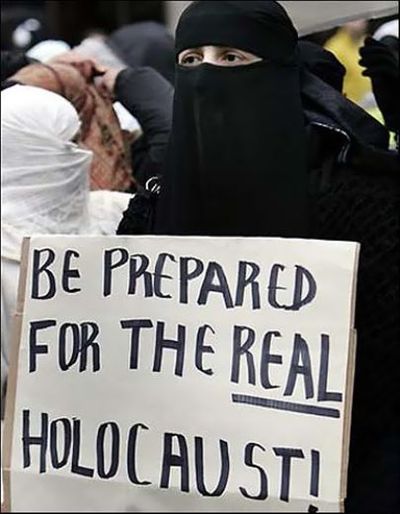Islamofascism And The War on Nigeria’s Christians
12/27/2011
Islamofascism: Scores of Christians attending Catholic mass in Nigerian churches were slaughtered in their pews by massive bomb blasts on Christmas Day. While decried as “un-Islamic,” a frightening number of Muslims believe the bombings are justified.
The year that began with a New Year’s attack on an Egyptian Coptic Christian Church that killed 21 worshippers is ending with attacks on two Nigerian churches that killed 35 and injured at least 57.
While such attacks are officially condemned, they are part of a campaign of violence and suicide bombings for which 34% of Nigerian respondents in a Pew Global Attitudes Project poll last year expressed support.
The first explosion occurred Sunday as Christmas service was ending at St. Theresa’s Church in Madalla near the Nigerian capital of Abuja. Some 35 people were murdered and 57 injured in the attack for which a radical Muslim sect known as Boko Haram, which translates to “Western education is a sin,” claimed responsibility.
Another blast occurred at a church in the central city of Jos, where last year at least 32 people were killed and more than 70 wounded in three bombings targeting Christian areas on Christmas Eve.
Jos is located roughly on the divide between Muslim north and Christian south. Sharia law was introduced in 12 northern states, where most Nigerian Muslims live, a decade ago.
Boko Haram is reported to have links to Somalia’s al-Shabaab and to al-Qaida’s North Africa affiliate, al-Qaida in the Islamic Maghreb. Pew’s 2010 poll found 49% of Nigerian Muslim respondents viewed al-Qaida favorably.
Nigerian Islamic scholar Sheikh Muhammad Isa told the News Agency of Nigeria that the attackers were not adherents of any faith, while Alhaji Quasim Badrudeen of the Muslim Students Society in Lagos described the attacks as “unfortunate and un-Islamic.”
“Un-Islamic” they may be, but they are part of a systematic campaign of violence and hatred against anything Christian and Western by Islamofascists that include the murder of Dutch filmmaker Theo van Gogh, the attacks on Danish cartoonists for merely depicting an image of the prophet Mohammed, and the prosecution of Dutch parliamentarian Geert Wilders, who dared to speak his mind about militant Islam and immigration and the threats he felt both posed to his country and democracy at large.
Mark Steyn, whose words often grace these pages, felt Wilders’ pain in 2008 when the columnist went on trial for “Islamophobia” in Canada. Like Wilders, this consisted largely of quoting Muslim speakers verbatim and drawing some obvious conclusions.
These latest violent attacks on Christian churches in Nigeria mirror the Oct. 31 onslaught on Our Lady of Salvation in Baghdad in which 68 people were murdered. The Islamic State of Iraq, another al-Qaida linked group, took credit for that attack and vowed a campaign of violence against Christians wherever they are.
The Iraqi church bombing was followed by a series of targeted attacks on Christian homes by bombers who clearly knew every Christian address. Many Iraqi Christians are fleeing northward to Kurdish areas while seeking asylum in the U.S. and elsewhere.
In a terrorist attack one minute after midnight last January, 21 Christians attending a New Year’s Mass were killed, and 97 people, mostly Christians, were injured after a car bomb detonated outside a Coptic Christian church in the Egyptian port city of Alexandria.
If this is yet another example of the hijacking of a religion of peace and tolerance, not everyone apparently got the memo.
Christians from Iraq to Egypt to Nigeria, as well as their Christian brethren worldwide, want to know when someone in authority will say “let’s roll” and wrest control from the hijackers.

